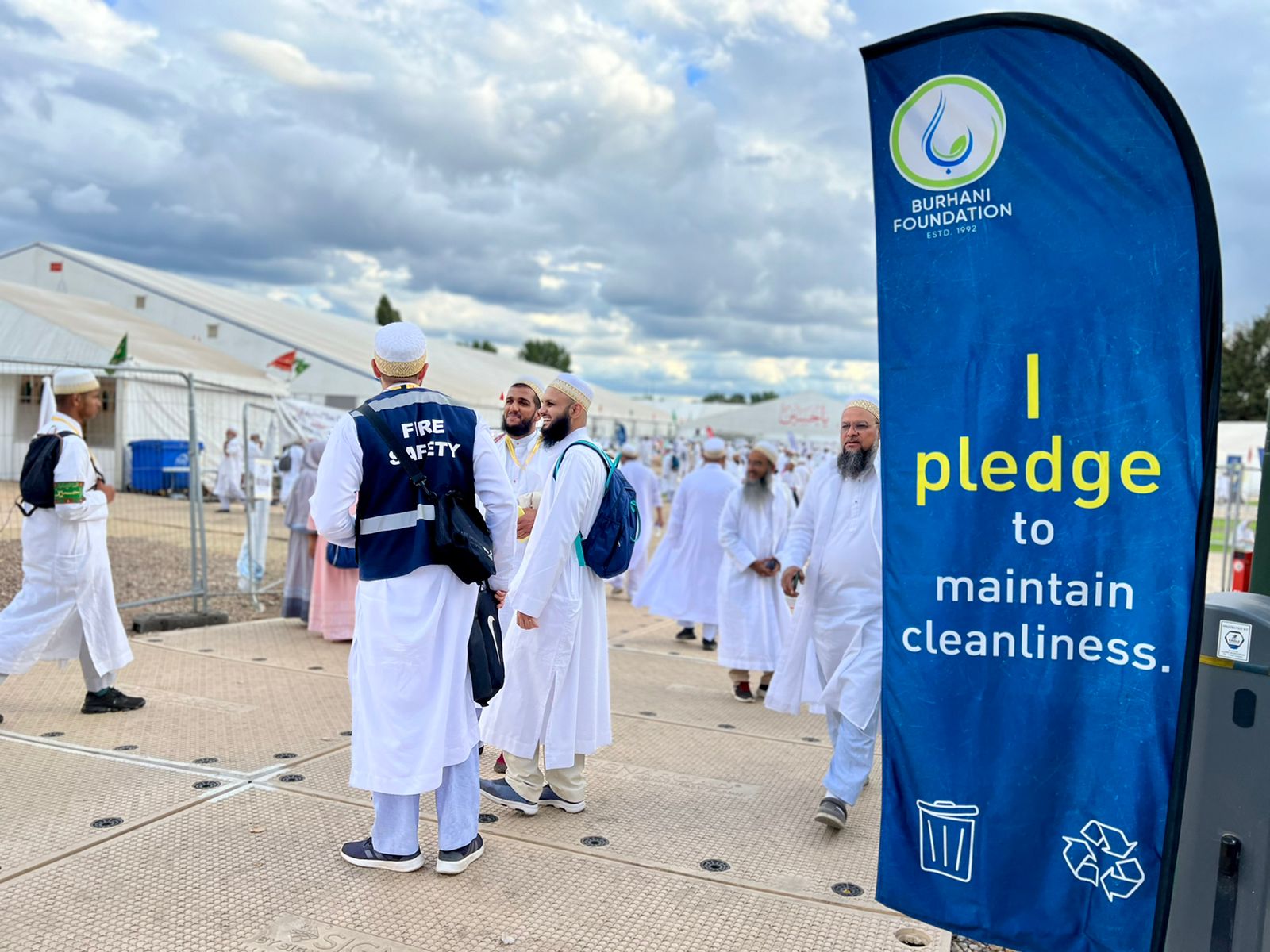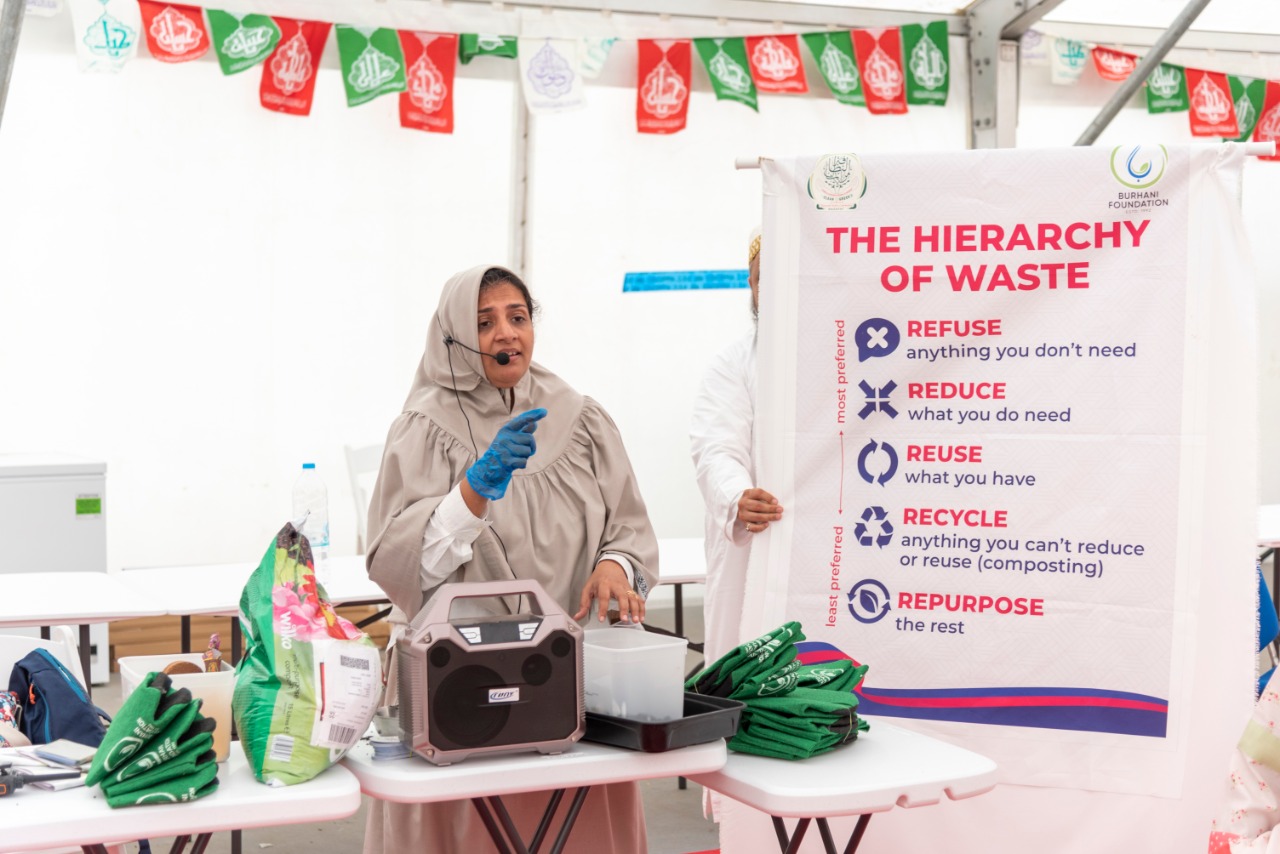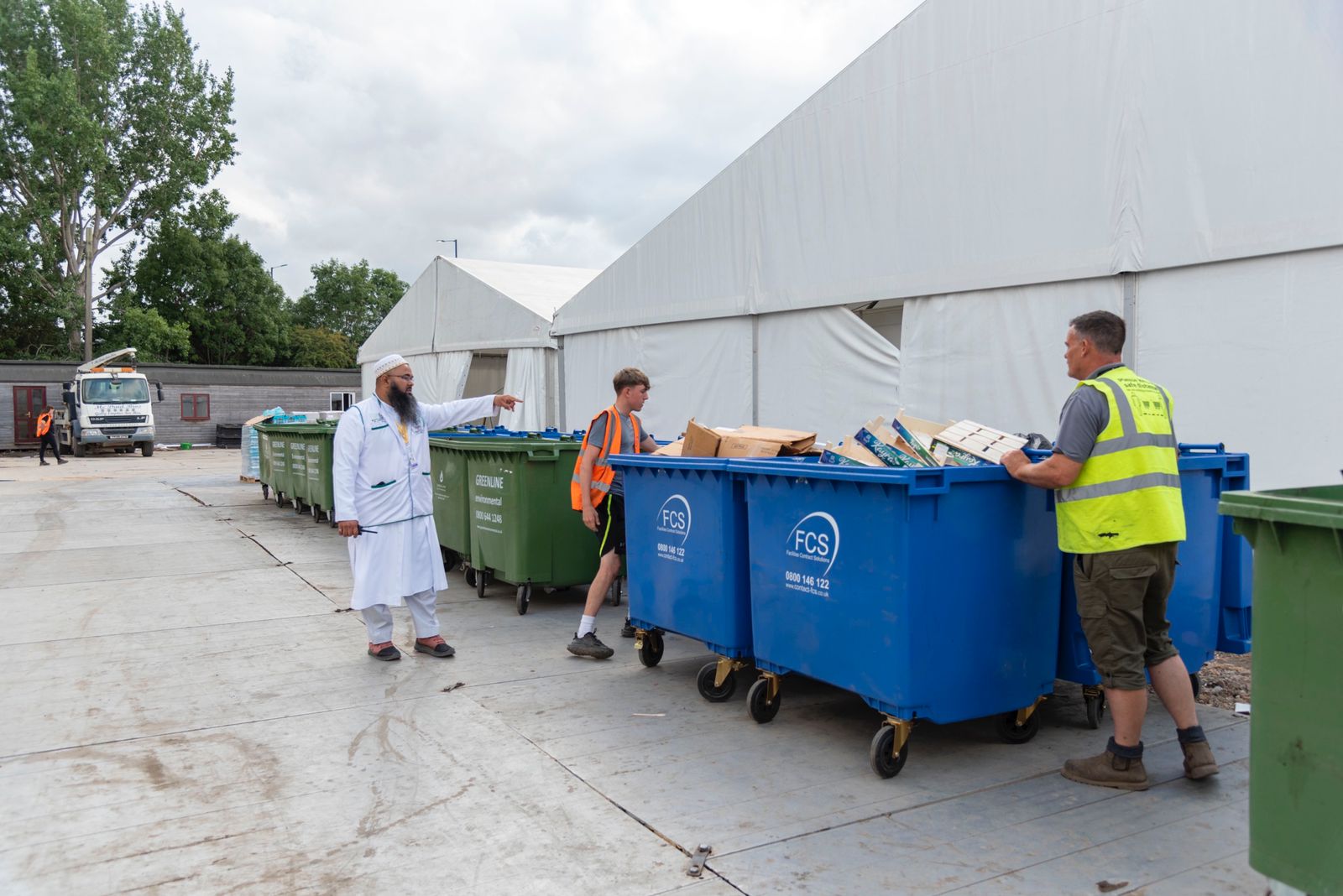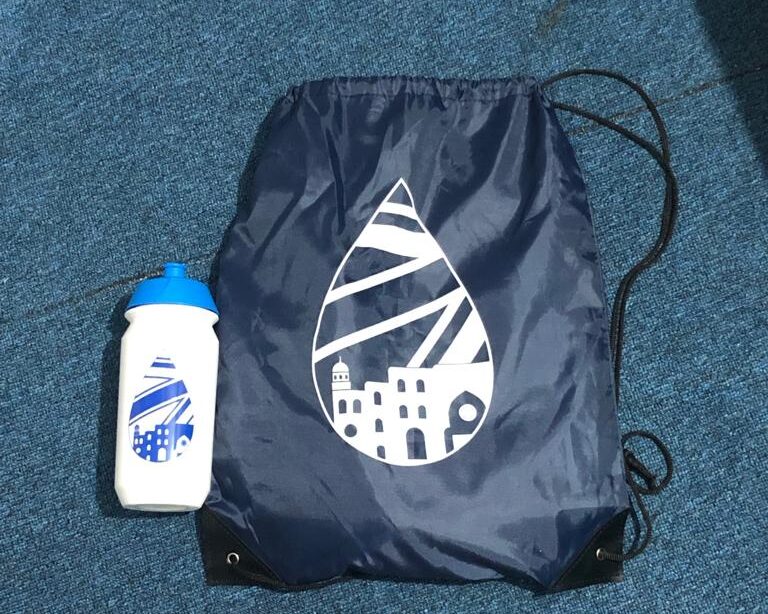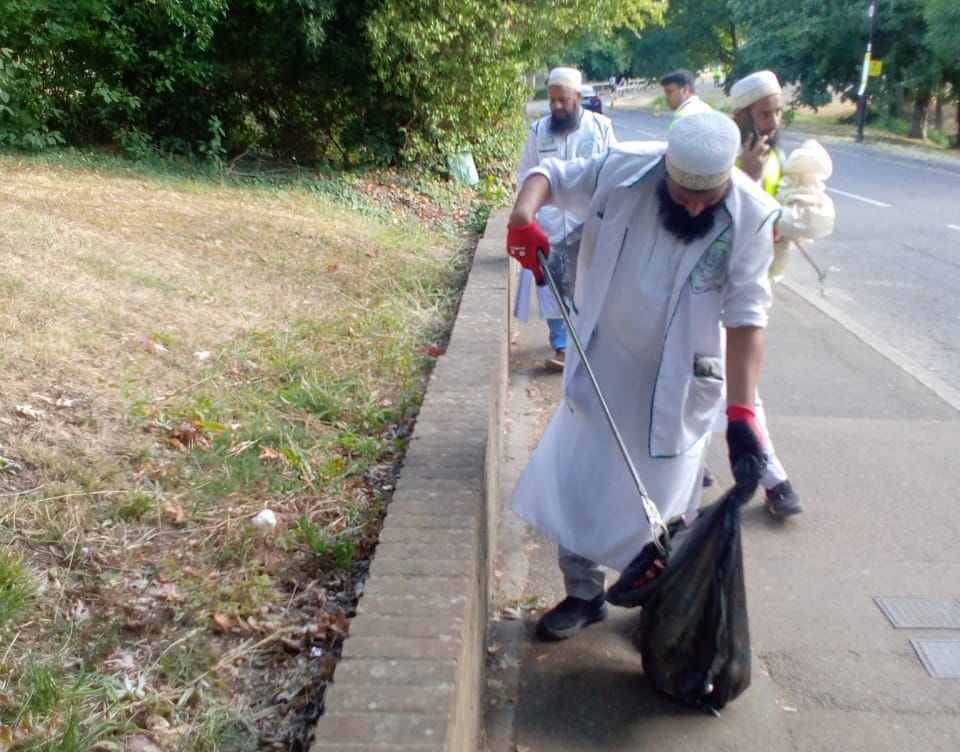As technology advances, nature struggles to keep pace with the consequences of industrial progress. Sustainable living has been taken for granted and a culture of convenience, defined by the take-make-waste system has negatively impacted almost every aspect of life. This attitude, combined with an influx of waste generation in our lifestyles has heightened human and environmental health concerns. But hope is not lost.
Guided by His Holiness Syedna Mufaddal Saifuddin, Dawoodi Bohras appreciate nature as Allah’s gift to humankind and strive to benefit their environment by planting trees and creating green spaces wherever possible. London’s Husainy masjid in particular, has distinctive gardens containing various types of flowers, trees and water features in its peripheries. Maintaining the cleanliness of the masjid grounds sustainably is another challenge which local Dawoodi Bohras do their best to live up to.
The community’s zero-waste initiative which entails responsible management of dry and wet waste, was first launched in an official capacity during the Ashara Mubaraka event in Indore, India, in 2018. Its primary aim is to ensure that events held by the community, on whichever scale, are sustainably managed. Throughout successive Ashara Mubaraka events and especially this year in London where more than 12,500 community members gathered, the Zero Waste initiative continues to be successfully implemented. This year at the outset, Burhani Foundation, the Dawoodi Bohra community’s environmental conservation body and Nazafat Committee, an international cleanliness movement, laid down policies, procedures and frameworks to ensure a ‘Sustainable Ashara Mubaraka’ event.
When asked about the implementation of this zero-waste initiative, Nisreen Mohamedali, one of the local Nazafat committee members said, ‘We are extremely pleased to see how community members wholeheartedly supported this initiative throughout the event by following guidelines and segregating waste at the source.’
‘Creating mass awareness at regular touch points and hosting various environmental workshops helped us keep the audience mindful of their duties towards nature and its ecosystems,’ she added.
Feather banners made of reusable cloth material were placed in the complex and attendees were constantly reminded to carry reusable shoe bags and water bottles. Videos were also used to sensitise people about supporting the zero waste initiative.
Another vital aspect of sustainability was the use of compostable cutlery and cups to serve food, water and milk. Compostable cutlery is generally more expensive than the disposable kind, but organisers were conscious of the social and environmental impact.
Young volunteers were assigned duties to counsel people about waste segregation and demonstrate how the coded bins should be used when disposing compostable and general (plastic and paper) waste. These bins were placed at intervals of less than 50 steps for ease of access.
Almost 100 % of the general waste collected during Ashara Mubaraka was sent to a specialised waste management agency for recycling and reusing. The compostable waste, including kitchen waste, bones, peels and compostable cutlery, was turned into biofertiliser.
Nisreen added, ‘To reduce the overall impact of air pollution on the environment, community members were also encouraged to use public transport or carpool to get around the Husainy Masjid complex.’
These efforts to ensure proper waste management and reduce its impact on the ecosystem have inspired the community to lead healthier and more sustainable events in the future.

